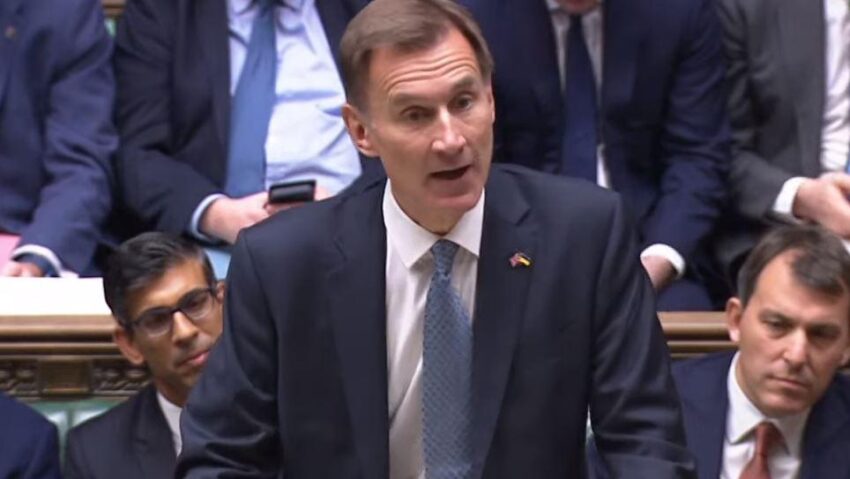Jeremy Hunt is planning a “slimmed down” spring budget with no immediate tax cuts as the Conservatives press ahead with attempts to win back economic credibility after the damage inflicted by the Truss administration.
Treasury insiders told the Guardian the chancellor was not expected to announce any tax cuts in his fiscal statement this March as his focus was wholly on getting the economy back on a steady footing and the public finances were tight.
They said that boosting growth, bringing down inflation and reducing national debt were the government’s top priorities as it seeks to restore confidence among business and the public – and only then could taxes be reduced.
“We don’t have enough headroom to announce tax cuts at this point,” one source said. “It wouldn’t be responsible. Our focus is wholly on steadying the economy and, with that, repairing our economic reputation.”
Conservative sources said, however, that there would be tax cuts before the next election – with the autumn statement the most likely moment for announcing changes to come in the following spring.
The next election is widely expected to be held in 2024, probably in the autumn. A Treasury spokesman said: “We do not comment on speculation around fiscal events.”
However, the chancellor’s plans for a slimmed down budget are likely to frustrate Tory MPs, already anxious about trailing Labour 20 points in the polls, who want the government to cut historically high taxes as a priority well before the election.
Some Conservatives are also calling for more public spending in red wall areas, while Hunt is coming under pressure from business leaders to loosen the purse strings to help reboot economic growth and limit the rise in the main rate of corporation tax, which is due to go up to 25% from April.
MPs who were loyal to Liz Truss’s tax-cutting agenda have begun to quietly organise before the fiscal statement to put pressure on the Treasury for more radical plans – and suggested Truss herself could speak out for the first time in advance of the budget.
“There is no reason why we can’t start to put tax cuts in motion this spring,” one former cabinet minister said. “Much of the catastrophising has not borne out and there are significant supply-side reform measures and tax measures that would boost growth if we took it on.
“I think the chancellor will find it hard to answer why he is not cutting income tax.”
Those MPs who are pressing for tax cuts are sharing statistics between themselves that they claimed show stronger signs of economic recovery to try to make the case for the Treasury to use what they believe will be unexpected fiscal headroom.
Among the potential indicators is that recent sharp falls in global energy prices are expected to reduce the cost of the government’s energy price guarantee, with economists predicting that as much as £10bn could be shaved off the bill. However, it would also mean that the windfall tax would raise less money.
The Bank of England governor, Andrew Bailey, said last week that he expects inflation to fall rapidly this year after hitting the highest levels since the early 1980s during the autumn after Russia’s invasion in Ukraine led to an increase in wholesale energy costs.
Another indicator is a stronger than expected economy in late 2022, boosted by the World Cup in the hospitality sector, which may help prevent a prolonged recession. A third is the news last week that the Bank of England has made £3.8bn in profits from the gilts purchasing that came in after Truss’s disastrous mini-budget.
Bailey said a risk premium on UK assets seen in the wake of Truss’s disastrous mini-budget in September was now “pretty much gone”, although he cautioned that confidence in the UK remained fragile.
“It’s going to take some time to convince people that we’re back to normal,” he said. Both the Bank and the Office for Budget Responsibility financial watchdog are predicting that the UK will go into recession.


